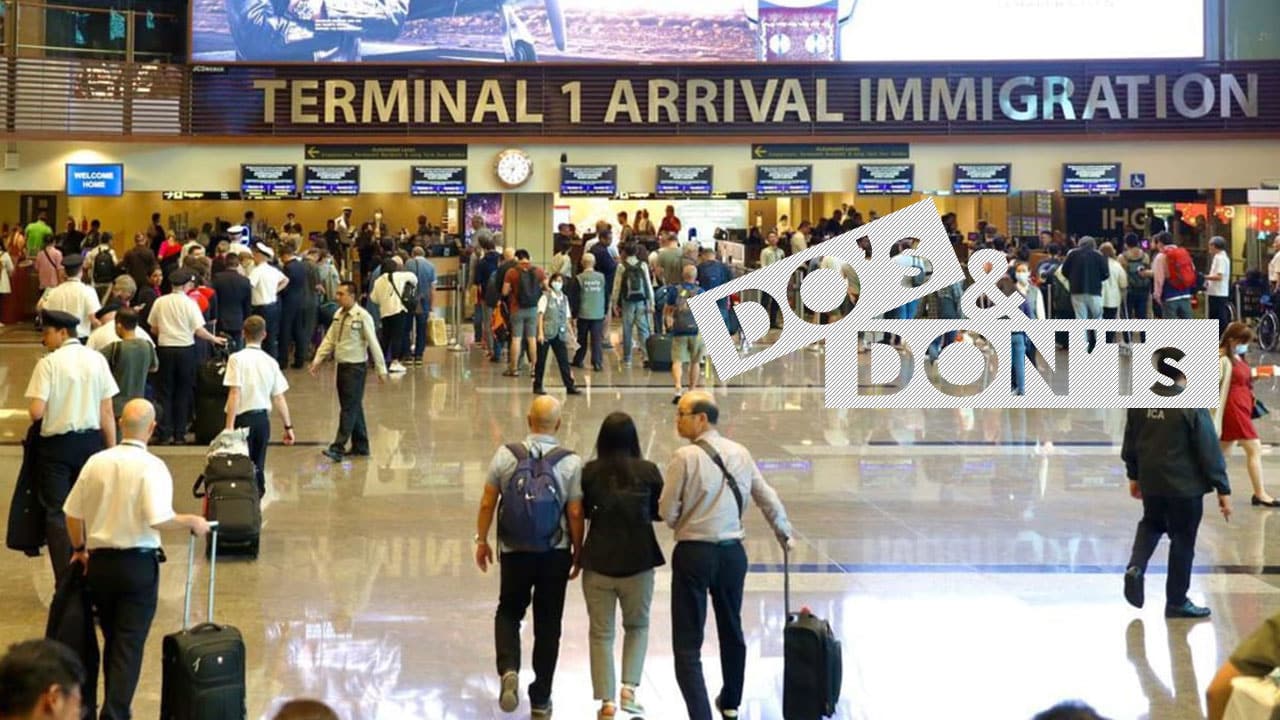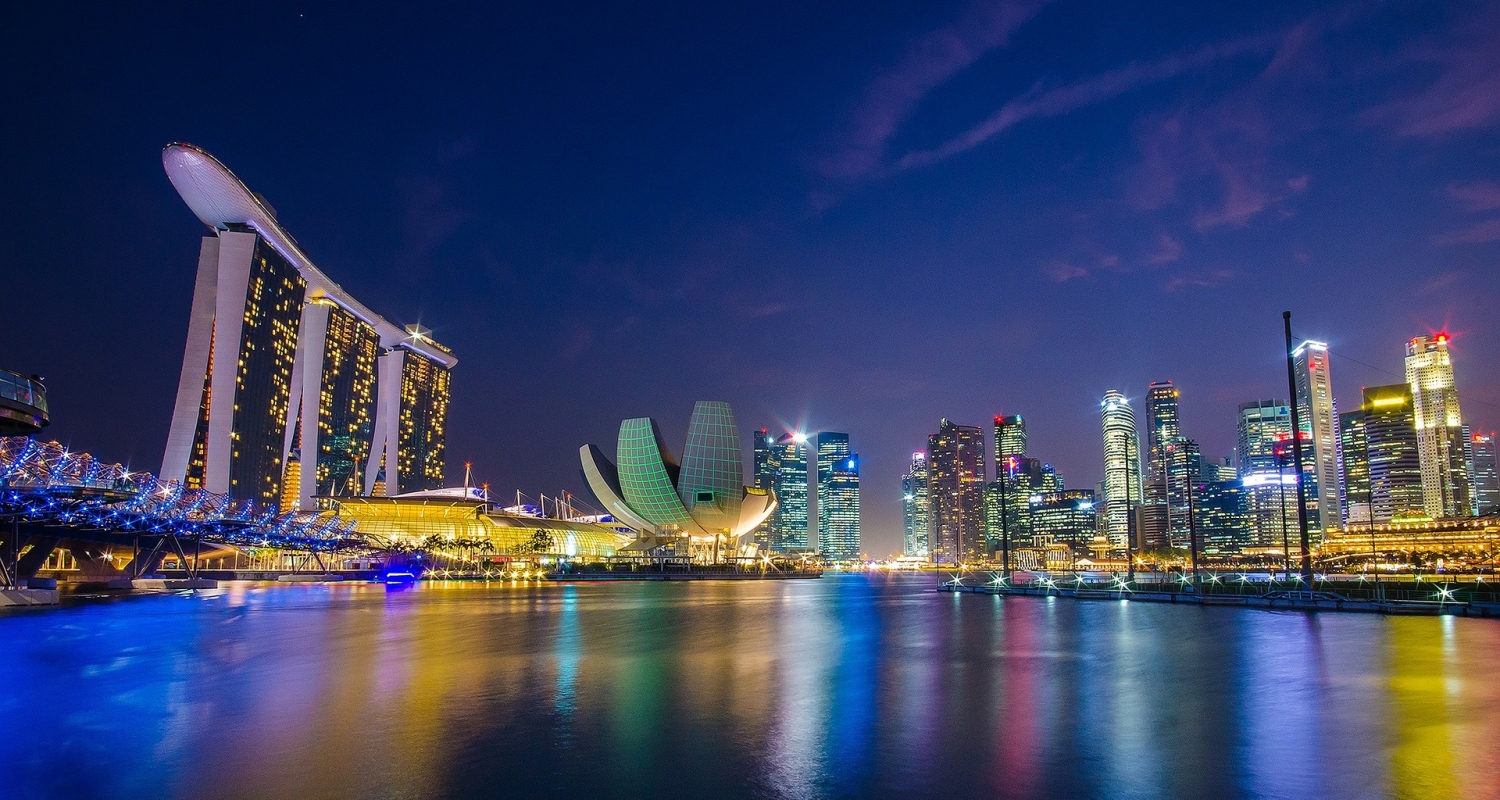Pakistanis in Singapore form a vibrant and diverse community that has contributed significantly to the country’s social, cultural, and economic fabric. The Pakistani diaspora in Singapore consists of individuals from different backgrounds, including professionals, skilled workers, students, and families.
The community is actively involved in various sectors, such as finance, information technology, healthcare, academia, and entrepreneurship. Many Pakistanis have excelled in their fields and hold key positions in Singaporean organizations and institutions.
The host society and the Pakistani community can build stronger bonds by studying and appreciating the history of Pakistani migration to Singapore. Also, they’ll be able to promote inclusivity and create a harmonious multicultural environment.
History of Migration
Pakistani migration to Singapore and Malaya can be traced to the region’s military recruitment by the British. The British military played a crucial role in immigrants’ job opportunities as they perceived them as “martial races.”
After military recruitment, the recruits were sent to look after other British territories overseas, including Singapore and Malaya. Punjab and the frontier provinces’ police force orgnanisation and recruitment was Captain Tristam Speedy suggestion in 1873. During this period, he led the recruitment of 110 Punjabis and Pathans during civil strife to enforce order and law in Malaya state.
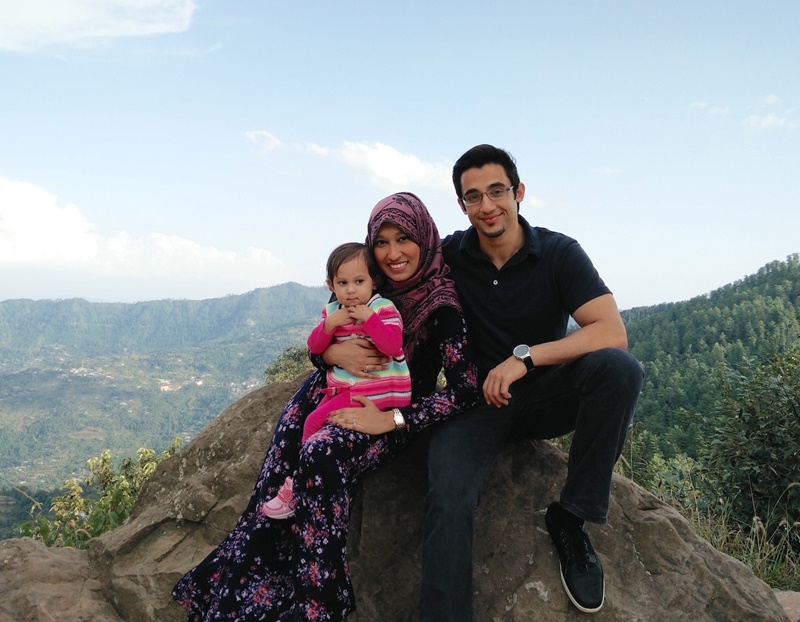
A decade later, Johor’s Sultan Abu Bakar employed the same strategy taking advantage of his excellent relationship with the British. In 1885 he founded the Johor military force and recruited people from the frontier province of Pathan district into his military.
By the official inauguration of the Federated Malay state police in 1896, the Sikhs and Pathans were above quarter among its total strength of about 2,000. With time the British showed their trust in the recruits to enforce law and order in Singapore and Malaya. In response, the recruits showed their worth to the British.
This recruitment from the frontier and Punjab paved the way for other people in the region to move across the Indian Ocean. The reason Malaya promised a better life.
By the commencement of the first world war, Punjab and frontier immigrants had a significant population in Singapore. In September 1917, they met in one of their member residences to plan support for the British during the first world war.
After the completion of the first world war, the second immigrant group started streaming from Punjab and the frontier.
How Many Pakistani in Singapore
As of 2020, Singapore has a total of 126,848 Pakistanis (Source: Statistica) and the number keeps going up. These include the descendants of people who migrated during the colonial era and other recent immigrants, including students. Their primary languages are Malay, English, and Urdu.
How to Get a Singapore Visa From Pakistan?
Online application is the simplest way to get a Singapore visa for Pakistani citizens. It’s simple, easy, and fast. To apply, you only need a few minutes to fill out and submit your application.
Also, you need to upload a valid passport on the bio page. Please note that your passport must have at least six months of validity from entering Singapore. Additionally, it should have one blank page and a cover. Please check this passport example.
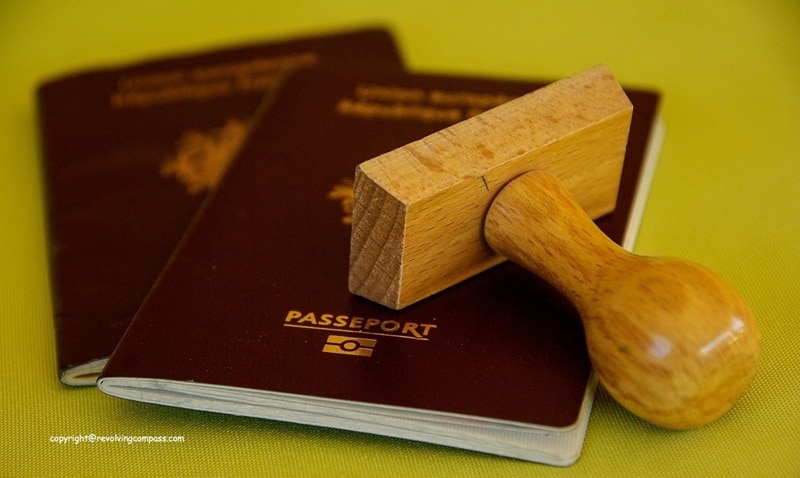
Next, you need to upload your recent colored passport photograph. To get it right, please check this sample passport. Also, you must proof accommodation with a 3-star and above hotel quality. If your relative is hosting you, you’ll need their passport copy and a utility bill showing their names.
Before you migrate and become a Singapore permanent resident, it’s important to visit first. Apply Singapore visa with us and embark on a stress-free journey to Singapore.
How To Get Citizenship in Singapore?
To obtain citizenship in Singapore, you must go through a formal application process and meet certain requirements. Here is a general overview of the process and basic requirements for obtaining Singapore citizenship:

Eligibility Criteria:
To qualify for Singapore citizenship, you must have the following:
- Be at least 21 years old.
- Be a Permanent Resident (PR) in Singapore for at least two years.
- Demonstrate the intention to reside in Singapore and contribute to its economy.
- Possess good character and law-abiding behavior.
- Have basic proficiency in English.
Application Process
Once you have the required qualification;
- Apply for Singapore citizenship to the Immigration & Checkpoints Authority (ICA).
- You can get the application form and guidelines from the ICA website or their office.
- Fill out the form accurately and attach all supporting documents.
Required Documents
You’ll need the following documents to apply;
- Complete the application form.
- Identity documents, such as passport, birth certificate, and NRIC (if applicable).
- PR card and re-entry permits.
- Educational certificates and qualifications.
- Employment history and income documents.
- Marriage certificate (if applicable).
- Proof of proficiency in English (e.g., educational qualifications, language test results).
Processing and Interview
Once you finish the application process;
- The ICA will review your application
- You may be called for an interview if the initial assessment is favorable.
- The interview assesses your commitment to becoming a Singaporean citizen and your knowledge of Singapore's culture, customs, and values.
Background Checks and Approval
After the interview, ICA conducts a thorough investigation;
- The ICA will conduct background checks on your character, conduct, and immigration records.
- The decision to grant citizenship rests with the ICA and is subject to their discretion.
- If approved, you will receive an approval letter and be required to attend a citizenship ceremony.
Citizenship Ceremony:
After successful application;
- You will take the Oath of Renunciation, Allegiance, and Loyalty at the citizenship ceremony.
- You will also receive your Singapore Citizenship Certificate.
It’s important to note that the process and requirements may change. So it’s advisable to refer to the official ICA website or contact the ICA directly for the most up-to-date information before applying.
How to Get PR in Singapore?
To apply for Permanent Residency / PR in Singapore, you must meet certain criteria and follow the application process. Here is a general overview of the process and basic requirements for obtaining Singapore PR:

Eligibility Criteria
You must achieve these criteria to qualify for Singapore permanent residence.
- Employment Pass (EP), S Pass holders, or individuals working in Singapore on an Entrepreneur Pass (EntrePass).
- Skilled professionals, executives, and technical personnel.
- Spouse and unmarried children (below 21 years old) of a Singapore citizen or PR.
- Investors and entrepreneurs who can contribute to Singapore's economy.
- Students studying in Singapore and graduates from educational institutions in Singapore.
Application Process
Once you confirm your Singapore permanent residence eligibility, you will need the following for your application.
- Apply for Singapore PR to the Immigration & Checkpoints Authority (ICA).
- The application form and guidelines can be obtained from the ICA website or their office.
- Fill out the application form and attach the necessary documents for proof.
Required Documents
To apply, you need the following;
- Complete the application form.
- Identity documents, such as passport, birth certificate, and NRIC (if applicable).
- Educational certificates and qualifications.
- Employment history and income documents.
- Marriage certificate (if applicable).
- Proof of family ties (if applying as a spouse or child of a Singapore citizen or PR).
- Business or investment records (if applicable).
Processing and Background Checks
After your application, the Singapore authority will process and verify your documents.
- The ICA will review your application and conduct background checks on your character, conduct, and immigration records.
- The processing time can vary and may take several months.
- The decision to grant PR rests with the ICA and is subject to their discretion.
In-person Interview (if required)
After verification, you may be required to attend an interview.
- Sometimes, you may be interviewed to assess your eligibility and suitability for PR status.
- The interview may focus on your reasons for applying, integration into Singapore society, and plans.
Approval and Collection of PR
After successful application and approval, it’s time to collect your permanent residence card/ certificate.
- You will receive an approval letter from the ICA if your application is approved.
- You must make an appointment with the ICA to complete the formalities and collect your PR card.
The process is competitive, so it’s advisable to ensure that your application is well-prepared. Also, support it with relevant documents demonstrating your contribution to Singapore’s economy and society.
How to Register a Company in Singapore?
Singapore company registration process is straightforward. Here are the basic requirements and steps to register:

Company Name
Identify a suitable name for your company
- Choose a unique name for your company that adheres to the Accounting and Corporate Regulatory Authority (ACRA) guidelines.
- Ensure the name is not infringing any trademarks or existing company names.
Shareholders and Directors
Indicate your company’s shareholders
- You need a minimum of one shareholder (individual or corporate entity) and a maximum of 50.
- At least one director must be a Singapore resident, holding either Singapore citizenship, Permanent Residency, or an Employment Pass/S Pass.
- Shareholders and directors can be the same individuals or different individuals/entities.
Company Secretary
For the company secretary;
- A company should have a secretary within the first six months after incorporation. Whereby the secretary must be a Singapore resident.
Paid-up Capital
- Decide on the shareholders' share capital amount to pay during incorporation. The minimum requirement is SGD 1.
Registered Office Address
- Provide a local Singapore address as the registered office address of the company. Please note a P.O. Box is not acceptable.
Incorporation Process
- Engage the services of a professional firm, such as a corporate service provider or law firm, to assist with the incorporation process. This step is not mandatory but necessary for a smoother process.
- Prepare the necessary documents, including the company constitution, director's and shareholder's particulars, and registered office address.
- Apply for company incorporation to ACRA through the BizFile+ online portal or via your appointed professional firm.
- Pay the registration fees and comply with any other relevant requirements.
Post-Incorporation
- Once the company is registered, you will receive an email notification and a Certificate of Incorporation from ACRA.
- Open a corporate bank account in Singapore.
- Comply with other obligations, such as registering for Goods and Services Tax (GST) (if applicable) and obtaining necessary licenses or permits for specific business activities.
Please note that additional requirements may apply depending on the nature of your business. It’s recommended to seek professional advice or consult ACRA’s website for detailed information and any updates to your specific registration process.
How Much Is Living Cost In Singapore
Singapore is one of the countries with high living costs in the world. Though we covered a glimpse of the living cost here, you can check out this detailed article for an overview of cost of living in Singapore. It might seem a bit costly at first but still, but you can still enjoy a quality life here.
Statistics show Singapore’s cost of living is about 39.1% above the United Kingdom. The high cost of living comes from the rentals since daily essentials and consumer items are low in the West. The rent is up to three times that in the UK.
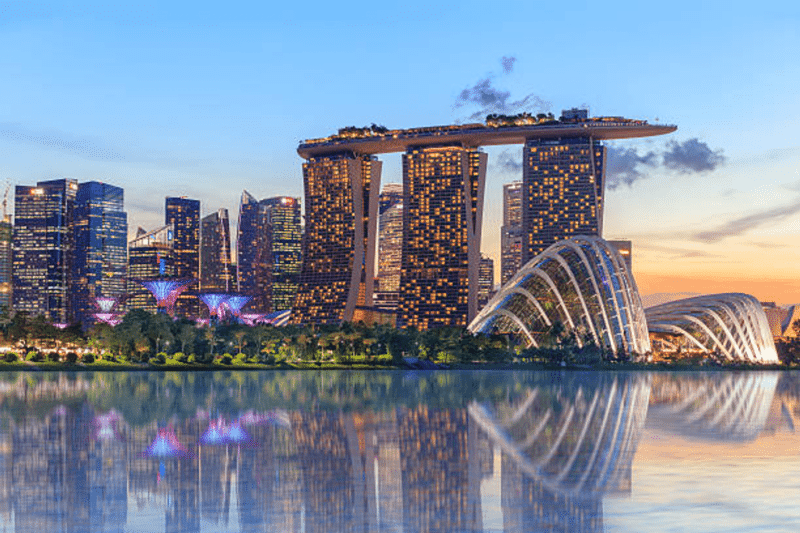
However, as a skilled worker, you will earn a suitable salary making the cost of living affordable. In addition, the tax rates are lenient; you pay a considerable amount compared to other countries.
Luckily, it’s easy to find high-paying work since the city’s key industries are in the service sector. Whereby about 73% of the working population works in tertiary sectors like sales, electronic and chemical engineering, business management, and aerospace.
Conclusion
Understanding the history of migration and the current status of Pakistanis in Singapore is crucial for individuals considering migration or business opportunities there. The first wave of migration from Pakistan to Singapore occurred years ago, initiated by pioneers who sought better economic prospects contributing to the nation’s growth.
Today we can say, Singapore is home to a sizable Pakistani community, with the population growing steadily.
Singapore offers opportunities for permanent residency and citizenship. Entrepreneurs should familiarize themselves with Singapore’s company registration process and requirements. This will enable you to navigate the process smoothly and establish your businesses effectively.
Lastly, visit Singapore visa online to obtain a visa, get your SG arrival card and explore the country before making any migration decisions.
One more tip, considering the cost of living in Singapore is essential for financial planning.


